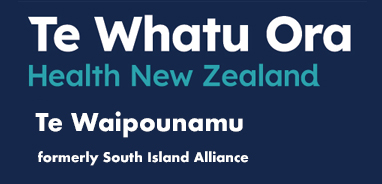Debbie presented at the annual South Island Stroke Study Day earlier this month about the impact of visiting people at home who had experienced a stroke, as part of a research project. “The research was about listening to what they want and to see if we could help them reach that goal. I ended up gaining more of an understanding about the problems they had that we don’t see when they’re in hospital.”

The South Island Stroke Study Day on 1 November 2018, held at Rolleston Lecture Theatre, Christchurch Hospital.
Debbie has been attending the study days for the past few years and this was the first time she had made a presentation. This year’s event was held on 1 November 2018, with 185 health professionals attending in person – from stroke service providers and stroke teams, to general practitioners and practice nurses. An additional 100 plus attendees linked into the event via video conference, across 11 sites across the South Island. One of eight presenters on the day, Debbie spoke about what she realised while visiting the stroke survivors at home. “When you go into somebody’s house, you see trophies, photos, paintings and gardens – you see much more of who they are. And because the visits weren’t time restricted, there was time to chat one-on-one with them about their situation and challenges – whereas in hospital you don’t have the time to do that.”A registered nurse for 35 years, Debbie has worked in the Christchurch Hospital Acute Stroke Unit since it opened 12 years ago. She says stroke care has progressed a lot over the years. “We’ve got a really good system, it caters to people throughout every stage, from diagnosis to rehab.”
As a student in training many years ago, one patient in particular still sticks in her mind. “She was a lovely lady who had a very dense stroke, so she couldn’t speak. She was in the ward for months and received very good care, but no rehab or anything, so her potential was never realised. Now I can see what she could have received when I look at the assistance our patients currently get – we have come so far since then. I think about her a lot.” Years ago, strokes were often viewed as the ‘end of your life’ and were more accepted as being just a part of getting older, Debbie says. “Now, there is more emphasis on prevention because we are doing a much better with messages – such as increased awareness by the Stroke Foundation, which is doing a great job, earlier diagnosis, as well as better

The South Island Stroke Study Day on 1 November 2018, held at Rolleston Lecture Theatre, Christchurch Hospital.diet and exercise management.”
Another hospital patient Debbie spoke about during her presentation was a woman who she was unsure about discharging. “She seemed quite lost and being in hospital seemed very difficult for her. We wondered how she would cope at home as she had a husband who had also experienced a stroke, a few years back. After delaying her discharge, we eventually sent her home and I called her and asked if she wanted to be a part of the research project.
“However, when I visited her a few days later, I couldn’t enrol her in the project because she was doing so well. Once she was back in her own environment, she was no longer worrying about her husband and they were looking after each other. She was back to doing everything she did before her stroke. So, it was interesting that when she was out of her context, she came across as confused and lost, but in her own home she was fine and there was nothing she couldn’t do.”
The research project was part of a study through the Medical Research Institute of New Zealand, which recruited 400 patients nationwide. Debbie says being involved in the research gave her a completely different perspective on stroke care. “One of the ladies I talked to had a goal of wanting to go on a cruise. She couldn’t even go outside for a walk as she lived on a hill, but her main aim was to go on a cruise – and that’s exactly what she ended up doing.”
Presented by the South Island Alliance and Southern Stroke Foundation, the annual Stroke Study Day focuses on enhancing the daily practice of stroke delivery and quality care. Other presentations this year included depression after stroke, cognitive changes following a stroke, aphasia, as well as a stroke survivor who spoke of her own stroke experience and journey to recovery. Debbie says it’s interesting to learn about different subjects each study day, as attendee numbers continue to grow every year. “One of the nurses I used to work with in the stroke unit here in Christchurch moved down south to work at Dunstan Hospital. After the study day, I got a message from her saying she had watched my presentation on their VC unit, so I thought that was really cool that they were also getting a day’s education down there and professionals from all over the South Island had the opportunity to watch it.”
| Acute stroke unit nurse Debbie Allen delivering her presentation at the 2018 South Island Stroke Study Day. |








